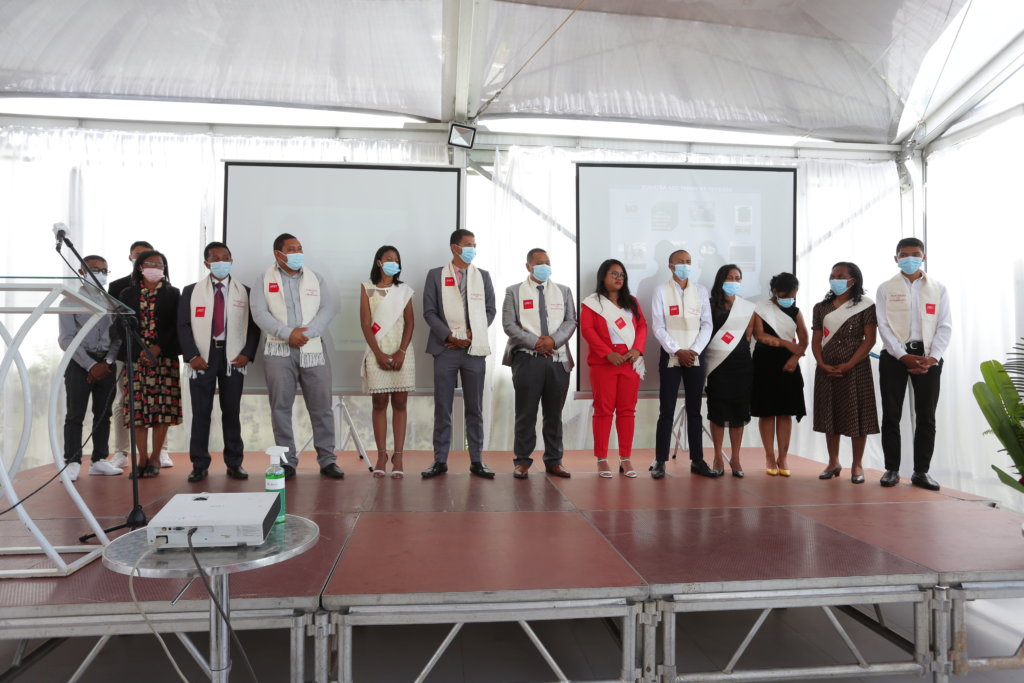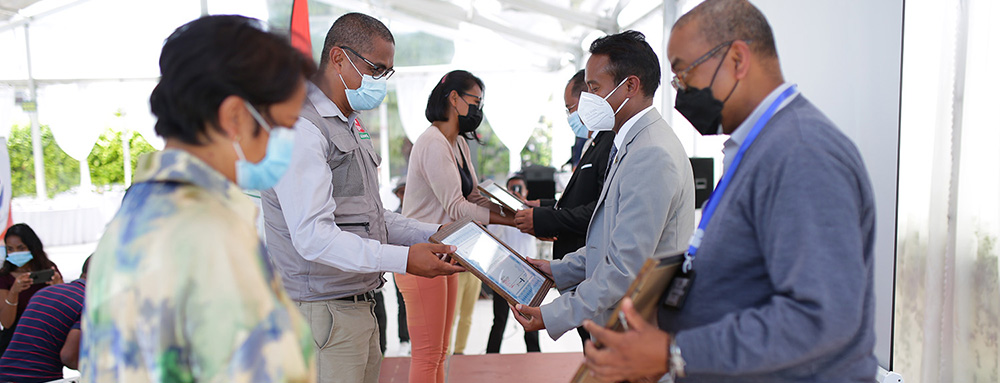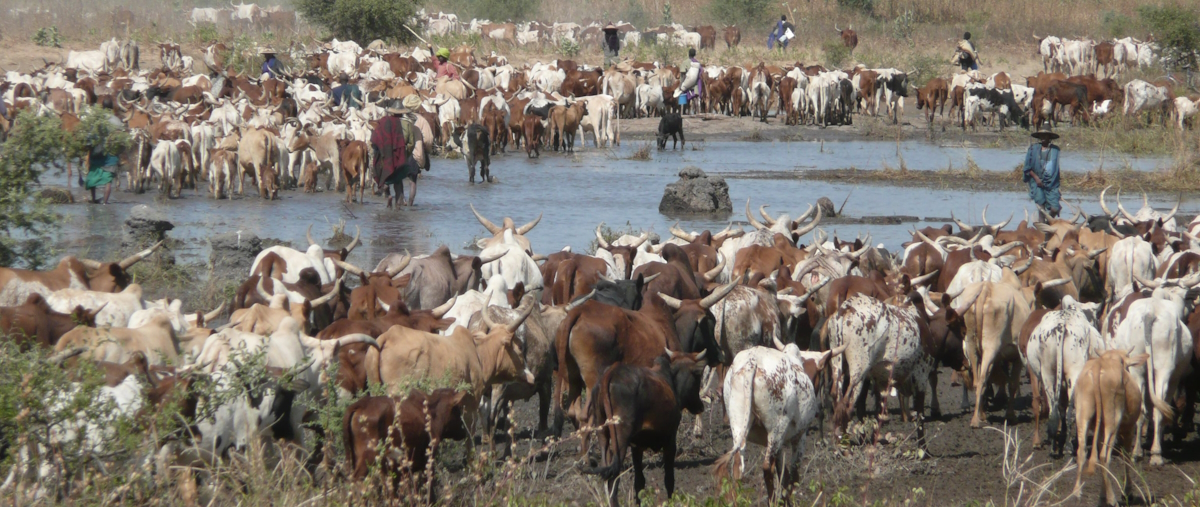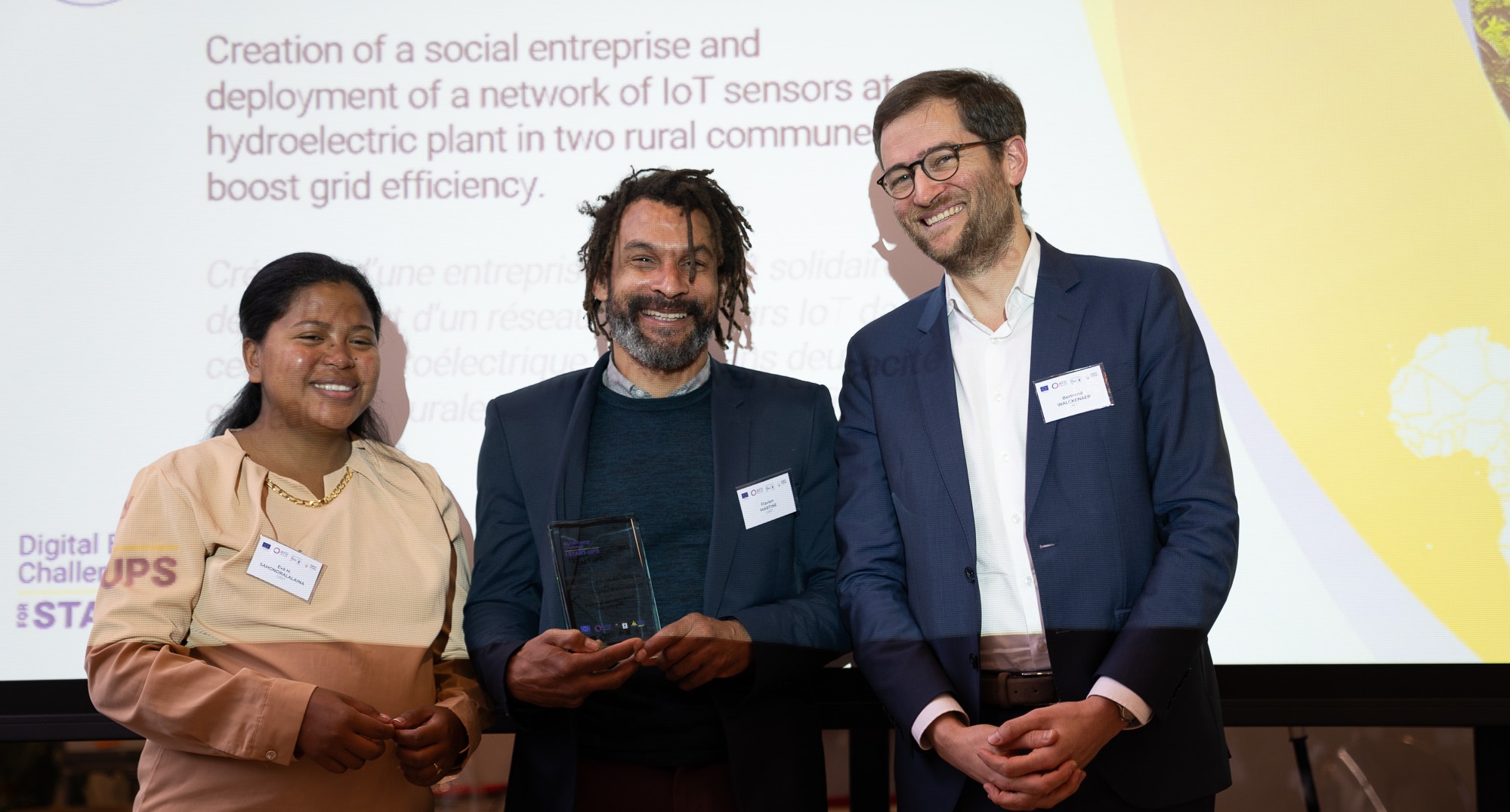The majority of Malagasy households still have a recurrent problem in terms of access to sanitation services, and only 16 % of them have access to hygienic toilets. In order to address this situation, since October 2018, GRET and its partners have been implementing the project for Concerted, sustainable and solid sanitation (Alisota*) in three communes on the outskirts of Antananarivo.
The workshop to mark the end of the project took place on 18 February 2022, under the auspices of the Directorate of Sanitation at the Malagasy Ministry of Water, Sanitation and Hygiene (MEAH). In order to valorise the strong involvement of the communes throughout the project, the mayors of Ambohimangakely, Ampitatafika and Tanjombato, who were the main stakeholders at this workshop, presented the results achieved in their respective communes.
Waste management and liquid sanitation: making services more accessible to the community
In order to sustainably strengthen communes’ capacities to manage household waste and liquid sanitation, around one hundred hygiene and sanitation stakeholders were trained as part of the Alisota project. A communal strategy was also developed in order to ensure planning and promotion of sanitation, emptying and household waste services management.
Currently, 10,500 households benefit from a waste pre-collection service in these three communes. With the support of its partner Diotontolo, GRET also contributed to 357 households being equipped with hygienic toilets and to all households accessing an improved hygienic emptying service.
“Hygiene and sanitation are part of the commune’s responsibilities, but we can’t do it alone. Fortunately, a communal strategy was implemented, thanks to this project”, says Rado Ramparaoelina, the mayor of Ampitatafika.

Valorisation: an inclusive, profitable project for the future
Waste management and liquid sanitation value chains contribute to the promotion of hygiene, health and environmental protection. And that’s not all!
Two waste treatment units were installed and made operational as part of the project. While 2,750 tons of waste are treated annually, making it possible to produce more than 200 tons of compost for three communes, treated sludge serves to produce biogas.
The mayor of Tanjombato, Tovo Rakotojohary is proud of the results obtained: “What this project implemented is totally profitable for the commune” he says. He has expressed his wish to extend the activities implemented, in particular using the biogas obtained by treating sludge to provide hot water in the public showers. The commune has also undertaken to professionalise the production of compost to promote a local compost label.

Communes setting an example…
In Antananarivo however, evacuation and treatment of household waste remain insufficient, in particular due to a lack of resources and knowledge among the stakeholders concerned. According to Mrs. Lydia Razafindrahona, infrastructure and urban development projects coordinator at Agence française de développement (AFD) in Madagascar, this project can be used as a basis of reflection for the creation of transitory technical landfill centres in Antananarivo.
This workshop was an opportunity for MEAH, AFD and GRET to award each of the three communes of intervention a certificate testifying they are showcase communes in terms of hygiene and sanitation.

* The Alisota project is funded by Agence française de développement, Greater Lyon Metropolitan Authority, the Municipality of Paris, The Stone Family Foundation and AgroParisTech.






